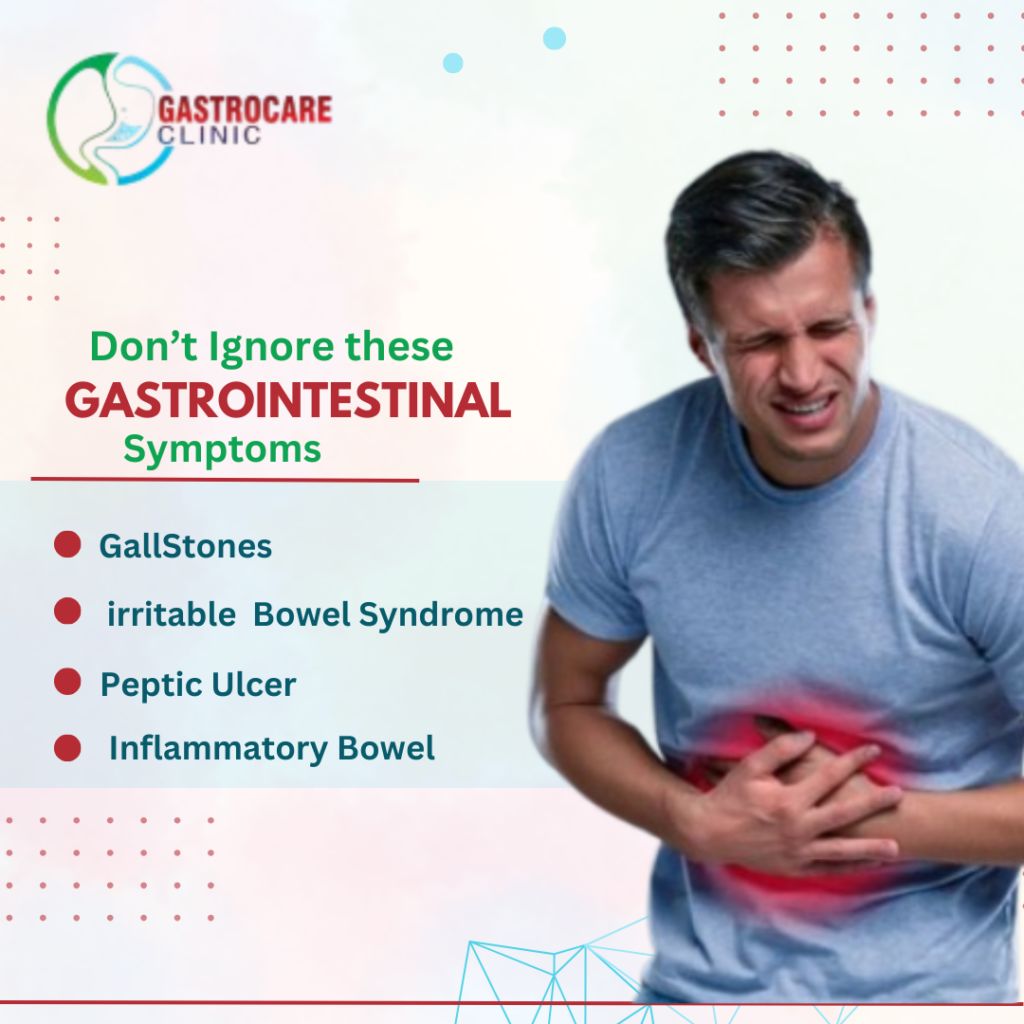The digestive system plays a crucial role in our overall health, yet many people experience gastrointestinal (GI) symptoms at some point in their lives. From mild discomfort to severe conditions, these symptoms can impact daily activities and quality of life. Understanding Gastrointestinal Symptoms Causes Treatment recognizing warning signs, and seeking timely medical attention from a Gastroenterologist in Miraj can help manage and prevent complications.
Common Gastrointestinal Symptoms
1. Acid Reflux and Heartburn
Acid reflux occurs when stomach acid flows back into the esophagus, causing a burning sensation known as heartburn. Common triggers include spicy foods, caffeine, alcohol, and obesity. Chronic acid reflux may indicate Gastroesophageal Reflux Disease (GERD), which requires medical intervention.
2. Abdominal Pain
Abdominal pain can arise from various conditions, including gastritis, ulcers, food intolerances, and infections. It can be mild, moderate, or severe and may be accompanied by bloating, nausea, or vomiting. If persistent or intense, consulting a Stomach Specialist in Miraj is recommended.
3. Bloating and Gas
Excessive bloating and gas are common digestive complaints that may result from dietary choices, irritable bowel syndrome (IBS), or bacterial overgrowth. Certain foods, such as beans, dairy, and carbonated drinks, can exacerbate symptoms. If bloating is persistent, seeking medical advice is advisable.
4. Constipation
Constipation is characterized by infrequent or difficult bowel movements, often due to low fiber intake, dehydration, or lack of physical activity. In some cases, underlying health conditions such as hypothyroidism or intestinal blockages could be the cause. Chronic constipation may require evaluation by a Gastroenterologist in Miraj.
5. Diarrhea
Diarrhea, or loose and watery stools, can result from infections, food intolerances, or gastrointestinal disorders like Crohn’s disease or ulcerative colitis. Persistent diarrhea lasting more than two days warrants medical attention to prevent dehydration and complications.
6. Nausea and Vomiting
Nausea and vomiting can stem from infections, motion sickness, pregnancy, or digestive disorders. If accompanied by severe pain, fever, or blood in vomit, seeking immediate care from a Stomach Specialist in Miraj is crucial.
7. Unexplained Weight Loss
Sudden and unintentional weight loss can be a red flag for serious conditions like celiac disease, inflammatory bowel disease (IBD), or even gastrointestinal cancers. Timely diagnosis and treatment can prevent further complications.
Causes of Gastrointestinal Symptoms
- Dietary Factors: Spicy, fatty, and processed foods can trigger digestive discomfort.
- Infections: Viral, bacterial, or parasitic infections can cause symptoms like diarrhea and vomiting.
- Digestive Disorders: Conditions like IBS, GERD, and Crohn’s disease can lead to chronic GI symptoms.
- Medications: Certain antibiotics, painkillers, and iron supplements can affect digestion.
- Stress and Anxiety: Psychological factors can impact gut health and trigger symptoms like bloating and cramps.
- Food Intolerances and Allergies: Lactose intolerance and gluten sensitivity can cause abdominal distress.
- Serious Health Conditions: Peptic ulcers, gallbladder disease, and cancers may present with GI symptoms.
When to See a Gastroenterologist in Miraj
While occasional digestive discomfort is normal, persistent or severe symptoms should not be ignored. Consult a Gastroenterologist in Miraj if you experience:
- Frequent heartburn or acid reflux
- Severe or chronic abdominal pain
- Blood in stools or black, tarry stools
- Persistent bloating, constipation, or diarrhea
- Difficulty swallowing or persistent nausea
- Unexplained weight loss
Diagnosis and Treatment
A Stomach Specialist in Miraj will conduct a thorough evaluation, including medical history, physical examination, and diagnostic tests such as:
- Endoscopy: To examine the esophagus, stomach, and intestines for abnormalities.
- Colonoscopy: To check for colon diseases, including polyps and cancer.
- Ultrasound or CT Scan: To detect structural issues in the digestive tract.
- Blood and Stool Tests: To identify infections, inflammation, or nutritional deficiencies.
Treatment depends on the underlying cause and may include dietary modifications, medications, probiotics, or, in severe cases, surgery. Lifestyle changes like regular exercise, stress management, and a balanced diet also play a crucial role in maintaining digestive health.
Conclusion
Gastrointestinal symptoms can be disruptive and sometimes indicate serious health conditions. If you experience persistent digestive issues, consulting a Gastroenterologist in Miraj or a Stomach Specialist in Miraj can help diagnose and manage the condition effectively. Early intervention and a proactive approach to gut health can prevent complications and improve overall well-being.
If you or a loved one are struggling with digestive problems, don’t hesitate to seek professional medical advice for a healthier and symptom-free life.

